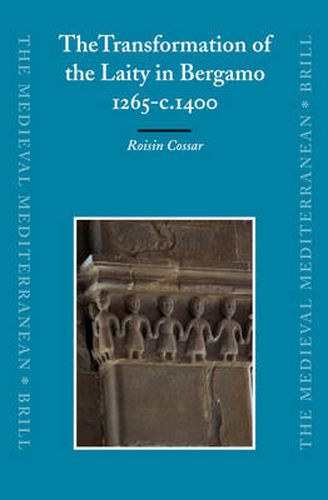Readings Newsletter
Become a Readings Member to make your shopping experience even easier.
Sign in or sign up for free!
You’re not far away from qualifying for FREE standard shipping within Australia
You’ve qualified for FREE standard shipping within Australia
The cart is loading…






This book examines the tension between social mores and religious activities among the laity in the Italian diocese of Bergamo during the later Middle Ages (1265-c.1400). Comparing the religious activities of lay men and women, both rich and poor, across a range of pious and ecclesiastical institutions, including confraternities, hospitals, parishes and the diocese, Roisin Cossar shows how the laity’s access to these institutions increasingly came to depend on their gender and social status during the fourteenth century. At the same time, she argues that all lay people, regardless of gender and social status, viewed themselves as equal members of a lay ordo. The book thus illuminates the complexity of late medieval religious culture, as it simultaneously reflected and challenged secular social values.
$9.00 standard shipping within Australia
FREE standard shipping within Australia for orders over $100.00
Express & International shipping calculated at checkout
This book examines the tension between social mores and religious activities among the laity in the Italian diocese of Bergamo during the later Middle Ages (1265-c.1400). Comparing the religious activities of lay men and women, both rich and poor, across a range of pious and ecclesiastical institutions, including confraternities, hospitals, parishes and the diocese, Roisin Cossar shows how the laity’s access to these institutions increasingly came to depend on their gender and social status during the fourteenth century. At the same time, she argues that all lay people, regardless of gender and social status, viewed themselves as equal members of a lay ordo. The book thus illuminates the complexity of late medieval religious culture, as it simultaneously reflected and challenged secular social values.